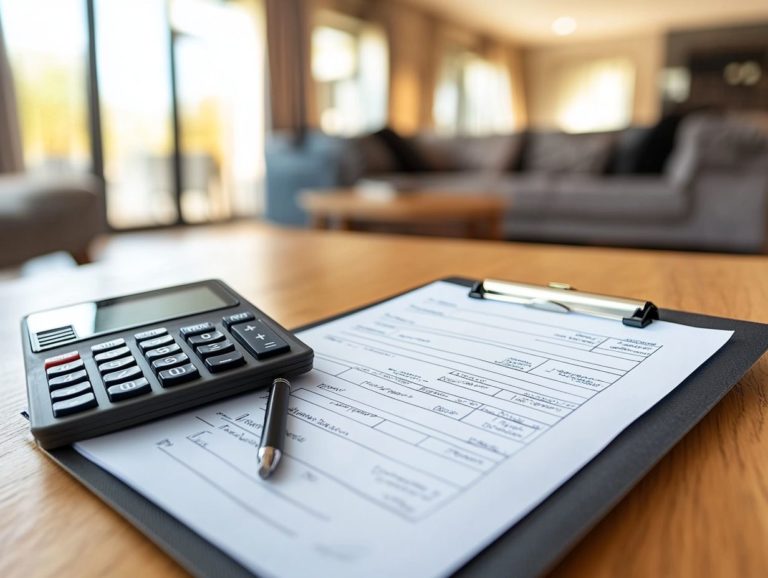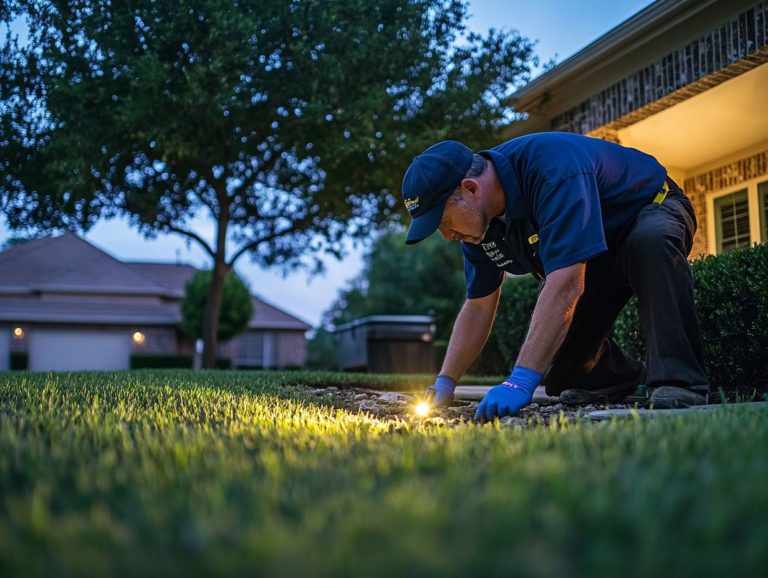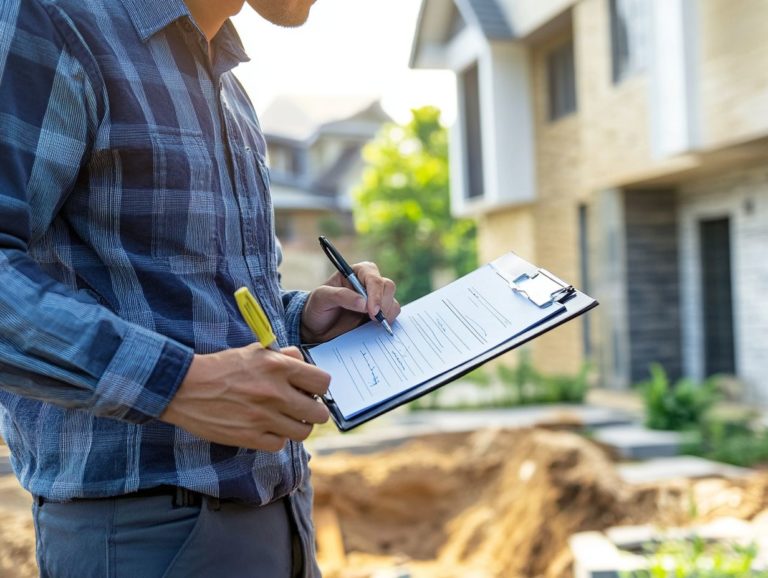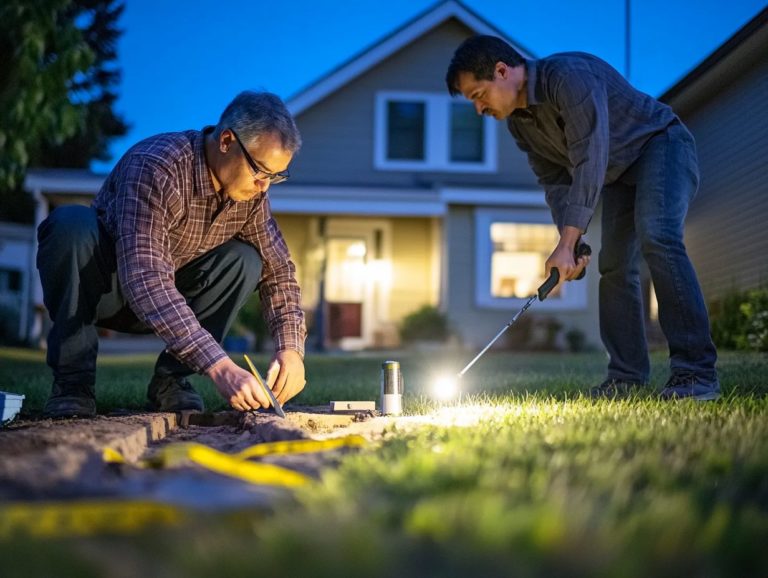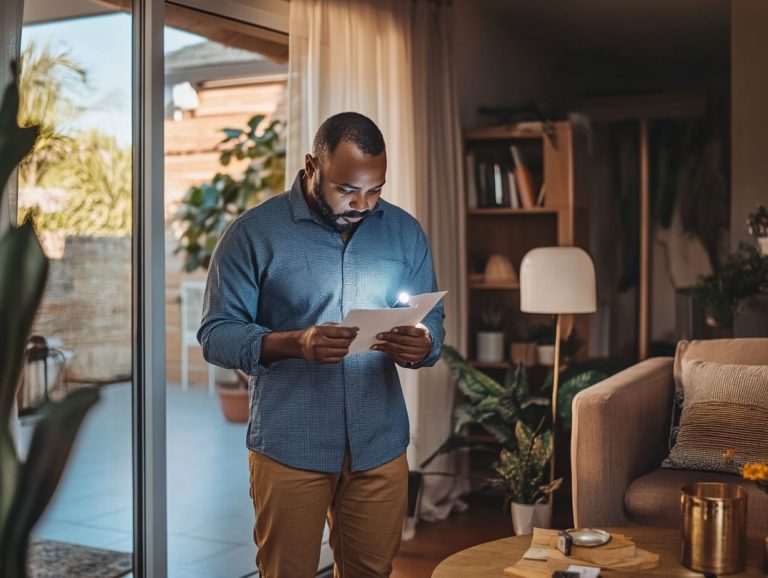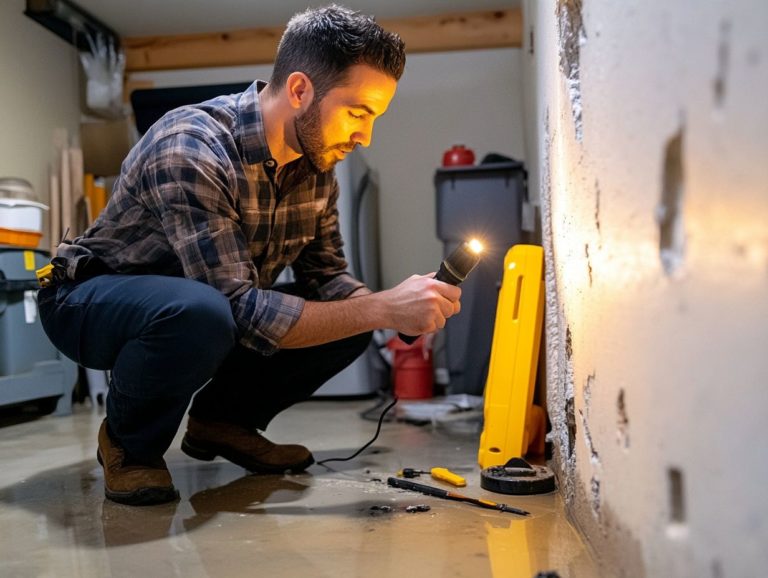The Importance of Inspections for Home Safety
Ensuring a safe home environment is essential for safeguarding your loved ones and protecting your property.
Home inspections are invaluable for identifying potential hazards, ranging from structural issues to electrical concerns that could pose risks. This article delves into the necessity of inspections, highlights the various types available, and identifies common safety concerns that every homeowner should be mindful of.
It discusses the numerous benefits of regular inspections and provides practical tips for preparing your home for a comprehensive evaluation. Discover how these proactive steps can help you maintain a safe and healthy living space.
Contents
- Key Takeaways:
- The Role of Inspections in Home Safety
- Types of Home Inspections
- Common Safety Concerns Found in Inspections
- Benefits of Regular Inspections
- Preparing for a Home Inspection
- Frequently Asked Questions
- What is the importance of inspections for home safety?
- Who Should Conduct Home Safety Inspections?
- What Areas of the Home Should Be Inspected for Safety?
- How Often Should Home Safety Inspections Be Done?
- What Are Some Potential Hazards That Can Be Identified Through Home Safety Inspections?
- Can Home Safety Inspections Help Save Money in the Long Run?
Key Takeaways:
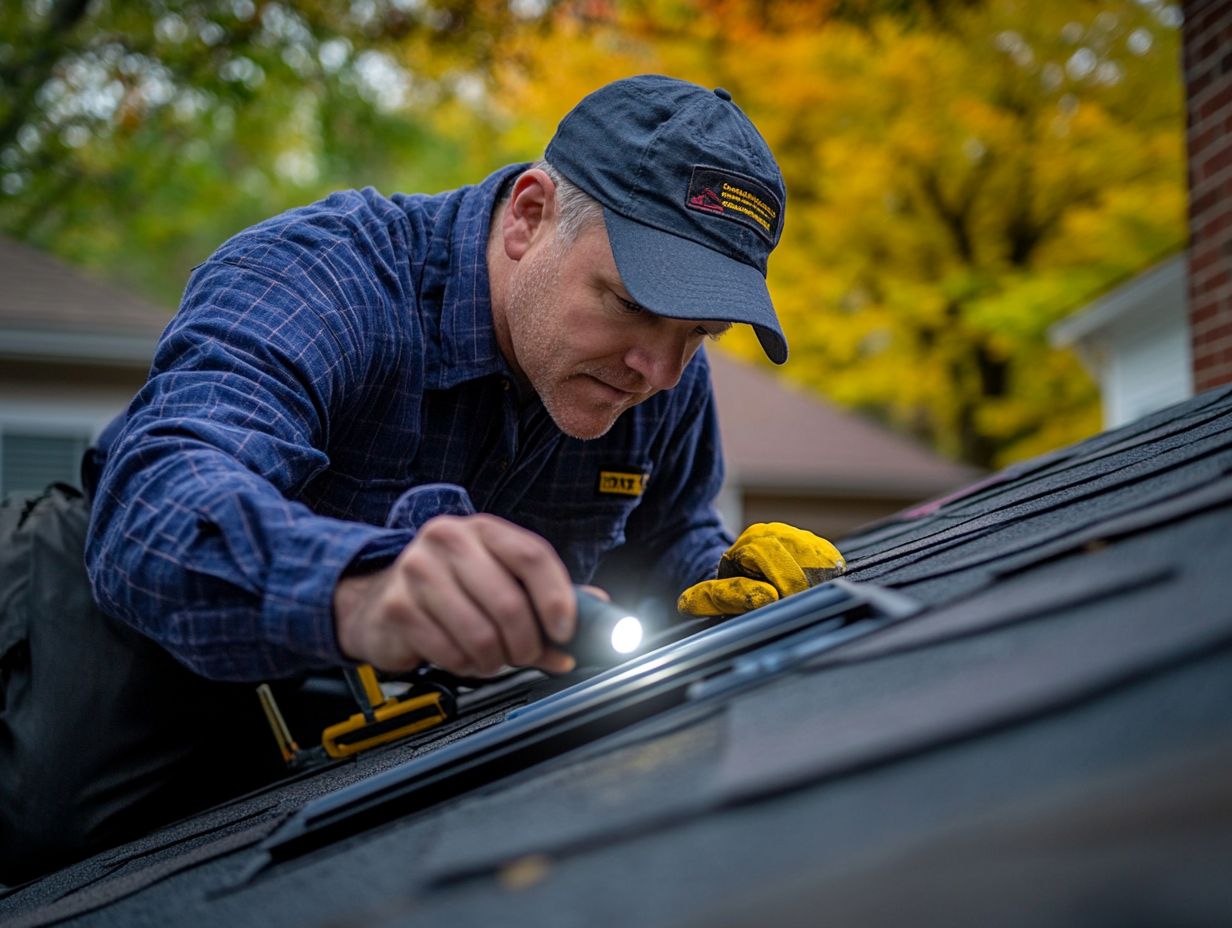
Regular home inspections are vital for your safety and can prevent accidents. Understanding the importance of thorough home inspections helps maintain a healthy living environment for you and your family.
The Role of Inspections in Home Safety
Home inspections are vital for ensuring property safety, especially in the California real estate market. Buyers and sellers gain from a complete assessment of a property’s condition.
This process protects everyone’s interests involved in a home purchase and increases your awareness of potential issues that could affect your investment.
Certified home inspectors conduct thorough visual evaluations of various property components, including the strength of the structure, plumbing, electrical systems, and heating, ventilation, and air conditioning (HVAC) systems. They ensure compliance with safety regulations and building codes.
Why Inspections are Necessary
Home inspections are essential for uncovering potential issues within a property, offering peace of mind to both buyers and sellers navigating the intricate home sales process.
These evaluations provide vital insights into the home’s condition, revealing safety hazards that may not be immediately apparent. A thorough inspection serves as a powerful asset during repair negotiations, allowing you to request necessary fixes or price adjustments based on the findings.
By enhancing your understanding of the property s true state, these inspections empower you to make smart, confident choices that can save you money and headaches, ultimately facilitating a smoother transaction process.
Recognizing the importance of a meticulous evaluation helps secure a fair price and protects all parties from unexpected surprises down the road.
Types of Home Inspections
You ll encounter several types of home inspections, each designed to serve distinct purposes while offering thorough evaluations of various property aspects.
From pre-listing inspections that prepare your home for sale to specialized safety inspections that assess specific systems and areas, understanding these categories is essential for both buyers and sellers navigating the California real estate landscape.
Overview of Different Types
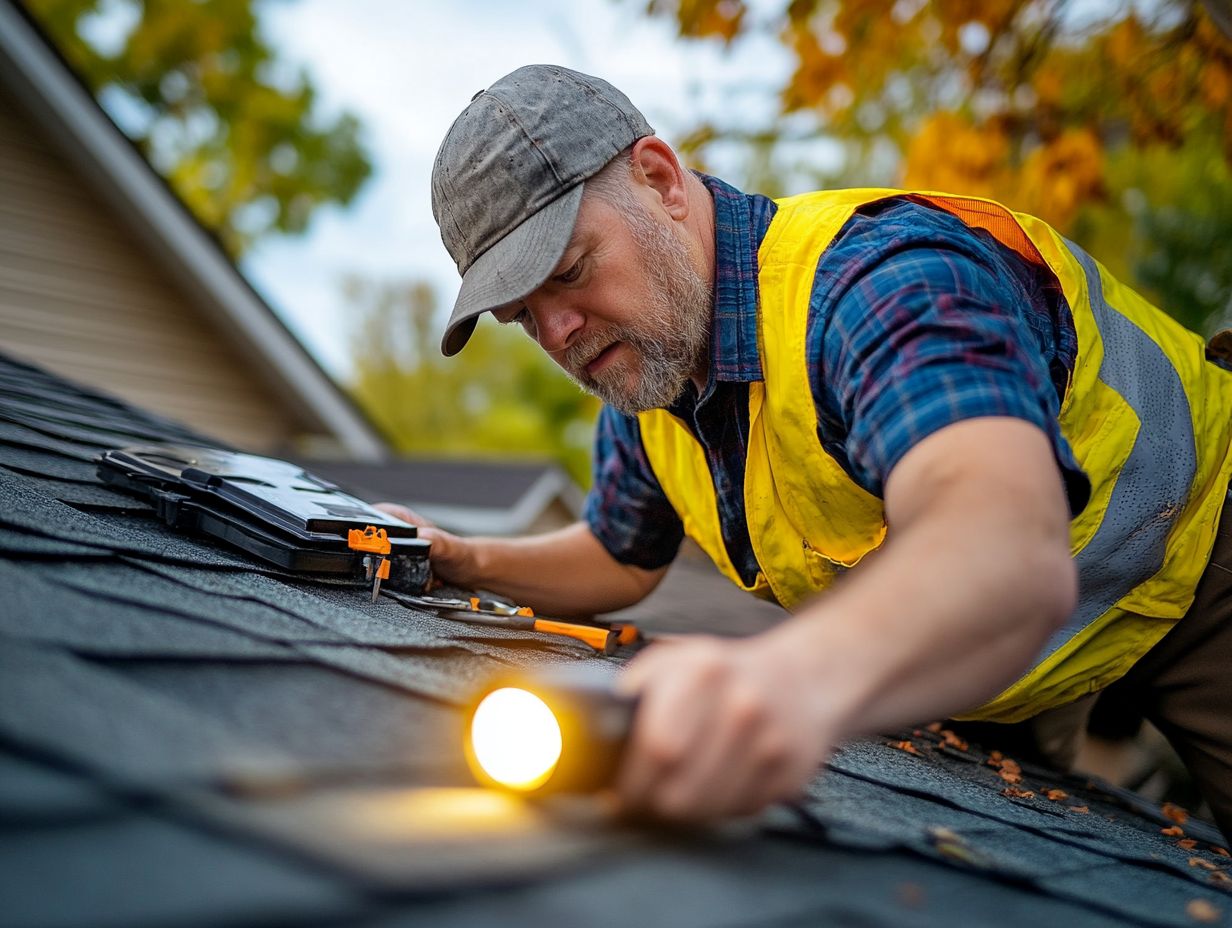
An overview of the various types of home inspections underscores the significance of tailored assessments for different property components, such as HVAC systems, plumbing, and electrical systems.
General inspections offer a comprehensive evaluation of your home’s overall condition, pinpointing any immediate repairs necessary to comply with safety regulations, including the importance of window inspections in homes.
Specialized inspections delve into specific systems or areas, meticulously examining details like the integrity of the roof, the functionality of appliances, or the potential for pest infestations.
For homeowners contemplating a sale, pre-listing inspections prove invaluable, unveiling issues that may require attention before the property hits the market. Each of these inspections is essential for ensuring property compliance and protecting your future investments.
Common Safety Concerns Found in Inspections
In home inspections, you ll frequently encounter safety concerns like foundation stability issues, drainage problems, and water damage.
Each of these factors can profoundly affect a property’s marketability. It’s equally crucial to conduct a comprehensive roof assessment; neglecting roofing issues can result in serious structural concerns and safety hazards down the line.
Issues to Look Out for
When you’re going through a home inspection, stay sharp for key issues that could impact your new home, such as safety hazards, major structural concerns, and hidden flaws that might not be readily apparent.
For prospective buyers like yourself, being aware of these potential red flags can greatly influence not only your peace of mind but also the financial implications of purchasing a home.
Problems such as outdated electrical systems or plumbing leaks can quickly drive up repair costs, making effective negotiations with the seller a necessity.
Your awareness is key; recognizing that minor signs of damage might point to more significant underlying issues can save you considerable trouble and money later.
Therefore, conducting thorough inspections and meticulous reviews is imperative to ensure that no critical detail slips through the cracks, ultimately enabling you to make an informed purchasing decision.
Benefits of Regular Inspections
The benefits of conducting regular home inspections go beyond just safety concerns; they are essential for maintaining a safe and healthy living environment, highlighting the importance of a thorough home inspection.
These inspections also provide critical protection for homebuyers throughout the purchasing process. By helping you evaluate properties thoroughly, the importance of roof inspections ensures that properties adhere to safety regulations while also enhancing your long-term maintenance planning.
This proactive approach enables you to safeguard your investment while fostering peace of mind in your home management.
Maintaining a Safe and Healthy Home
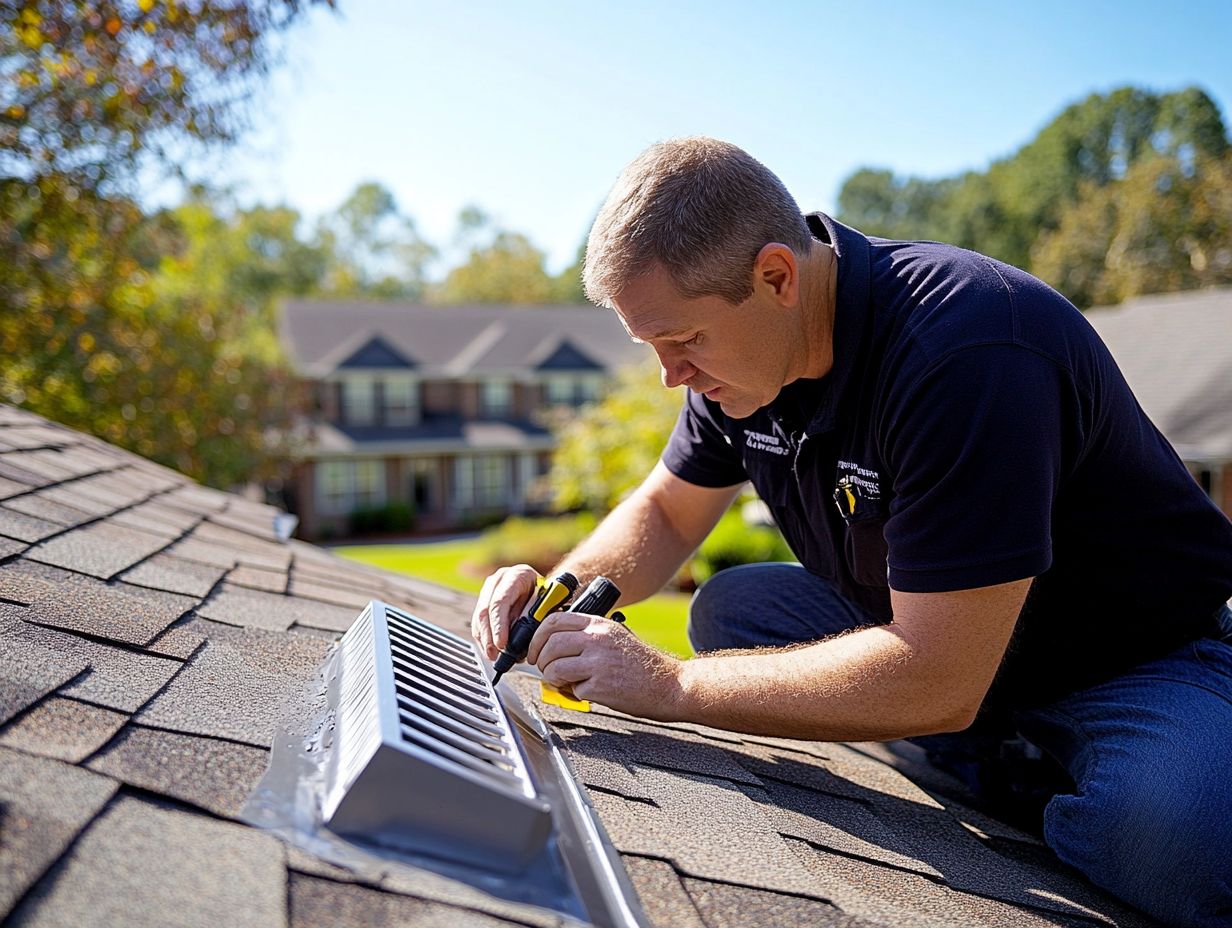
Maintaining a safe and healthy home is greatly enhanced by conducting regular inspections, such as structural inspections in homes, which ensure that your space consistently meets current safety regulations and building codes.
These inspections play a crucial role in identifying potential hazards before they develop into serious issues, while also helping you adhere to necessary property compliance standards. For more insights, consider understanding the need for home inspections.
By using a comprehensive home inspection checklist, you can systematically evaluate essential components, including electrical systems, plumbing, and structural integrity, which means how well the building is held up.
Regular assessments provide you with peace of mind, assuring you that your living environment is conducive to well-being.
Ultimately, ensuring that every corner of your home is in optimal condition not only enhances safety but also contributes to preserving your property s value over time.
Preparing for a Home Inspection
Preparing for a home inspection is essential for both buyers and sellers, as it lays the groundwork for a successful evaluation and can profoundly impact the negotiation process.
Utilizing an effective inspection checklist allows you to pinpoint areas that may need attention prior to the inspection, ensuring that you re fully prepared and confident as you move forward.
Steps to Take Before an Inspection
Before an inspection, there are several critical steps you should take, starting with creating a comprehensive inspection checklist that addresses key areas of concern and preparing your home to meet expected conditions.
Understanding the significance of property compliance is vital for you as a homeowner. Minor repairs, like fixing leaky faucets or replacing broken tiles, can greatly enhance your property s overall condition.
It s also essential to ensure that access to key systems, such as heating, plumbing, and electrical, is readily available for a thorough examination. Strive to declutter your spaces and enhance the ambiance, allowing inspectors to navigate your home with ease.
This preparation not only raises buyer awareness but also showcases your home in its best light, ultimately contributing to a smoother inspection process and leaving a more favorable impression on potential buyers.
Frequently Asked Questions
What is the importance of inspections for home safety?
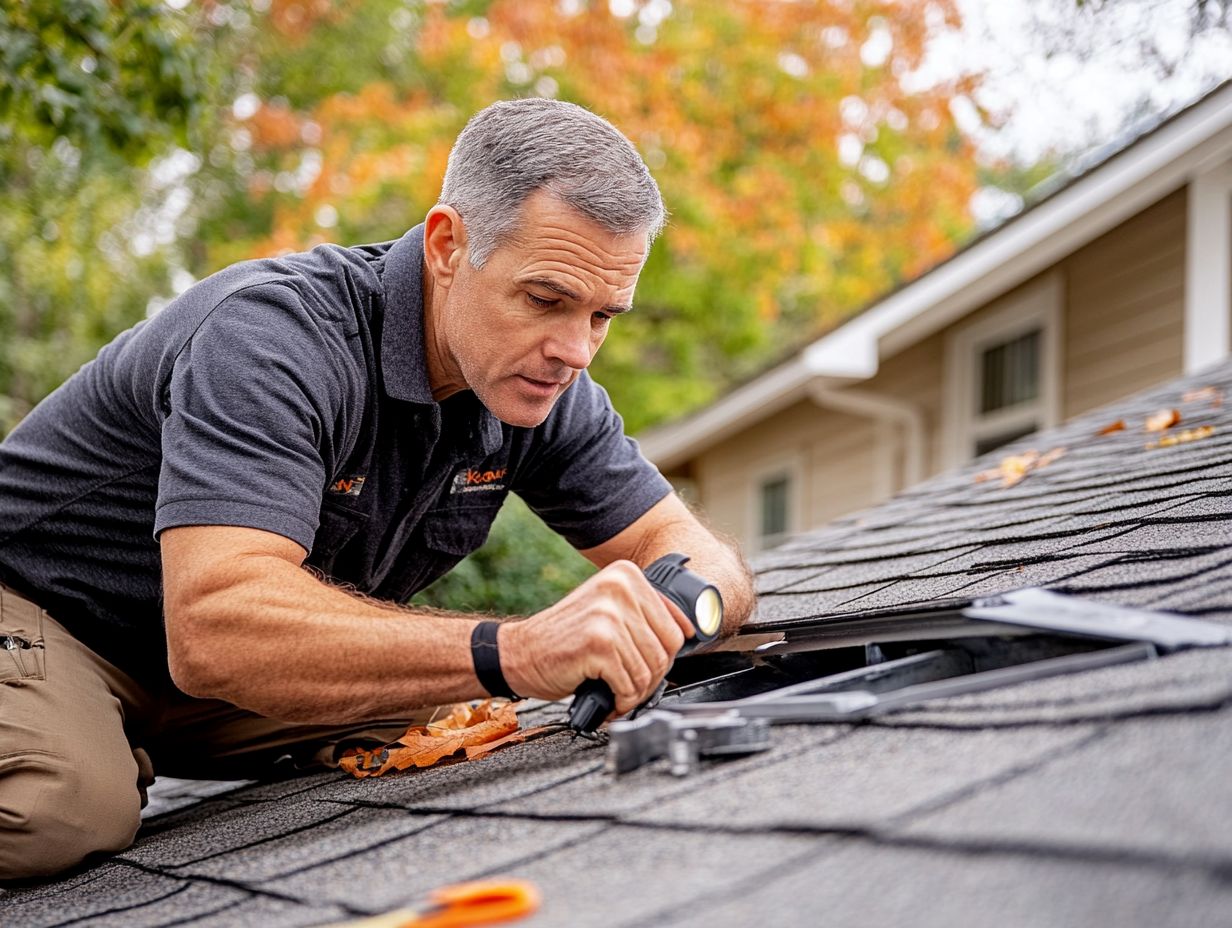
Inspections are crucial for identifying hazards and making sure homes are safe.
Make sure to schedule your inspections soon or contact a professional for assistance!
Who Should Conduct Home Safety Inspections?
Home safety inspections can be done by trained experts like home inspectors, electricians, plumbers, and structural engineers. Homeowners can do basic checks themselves but should call a pro at least once every few years.
What Areas of the Home Should Be Inspected for Safety?
Check every part of your home, both inside and outside. Look for hazards in electrical, plumbing, and structural systems. Ensure safety features like smoke detectors and carbon monoxide alarms work well.
How Often Should Home Safety Inspections Be Done?
Get home safety inspections done at least every few years. For older homes or those with known issues, consider the importance of a home inspection for buyers and schedule an annual professional inspection for the best results.
What Are Some Potential Hazards That Can Be Identified Through Home Safety Inspections?
Inspections can spot issues like faulty wiring, leaks, structural weaknesses, mold, and outdated safety devices like fire extinguishers and smoke alarms, highlighting the importance of pre-purchase home inspections.
Can Home Safety Inspections Help Save Money in the Long Run?
Yes! Home safety inspections can save you money by catching hazards early and preventing expensive repairs. They can also lower your insurance premiums by ensuring your home meets safety standards.

